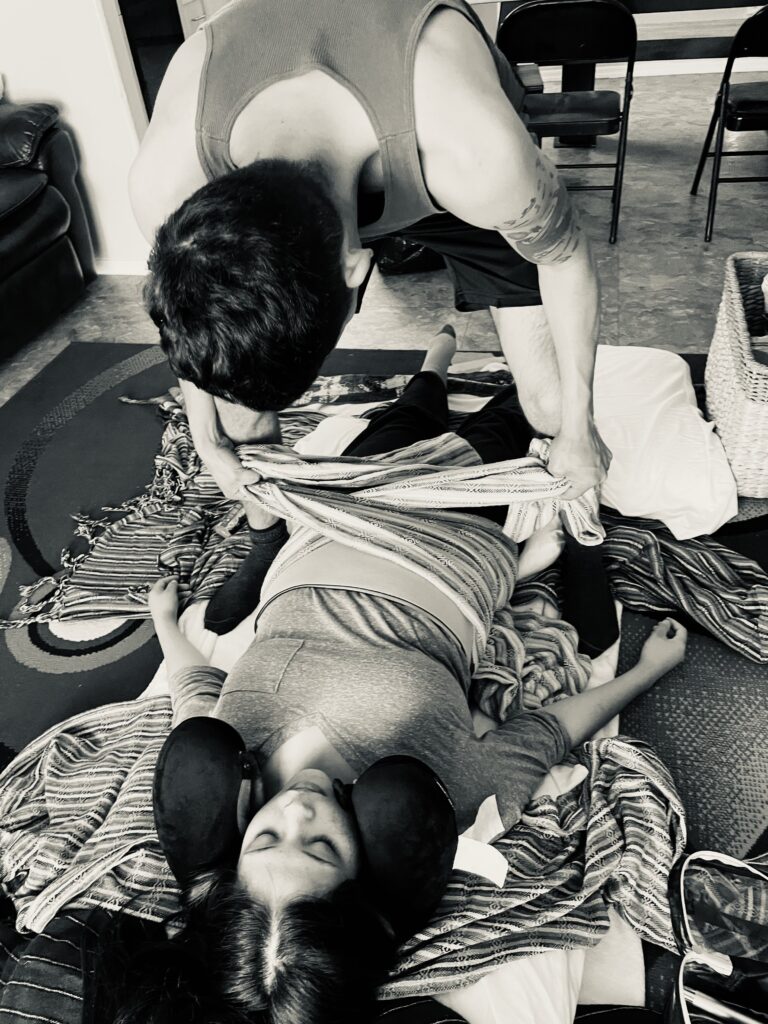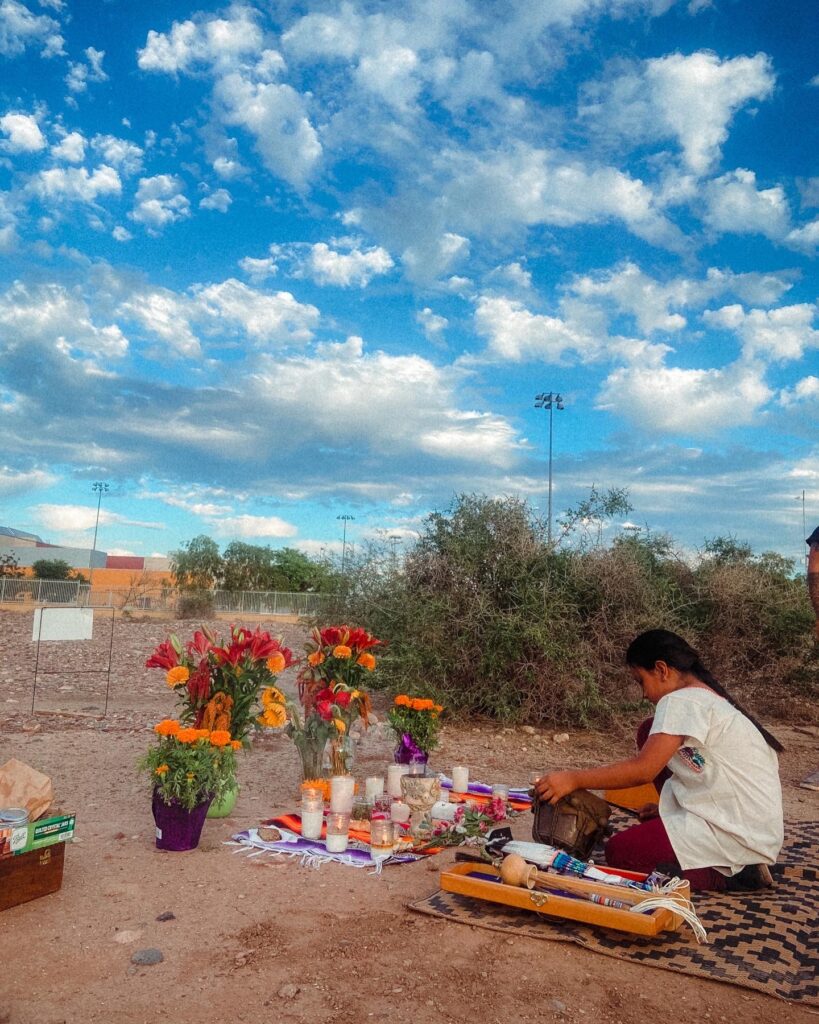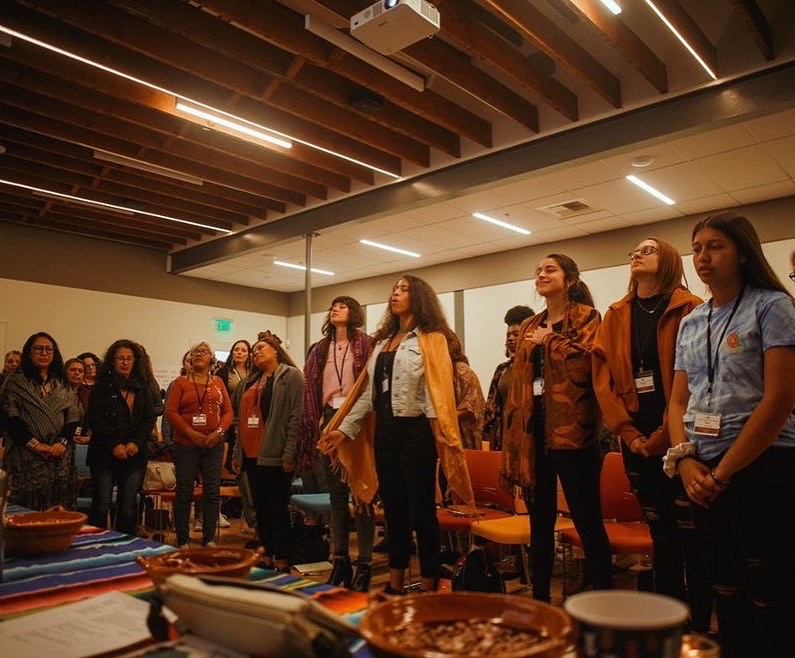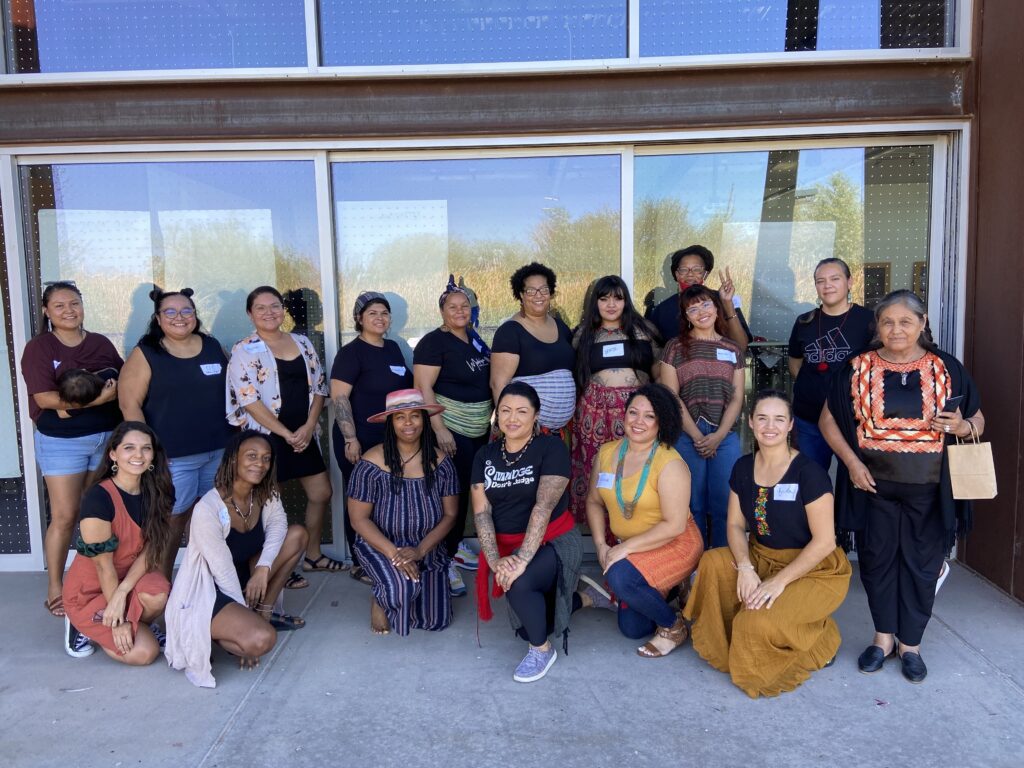Expanding to Change the Future for More Indigenous Women and Girls in Arizona
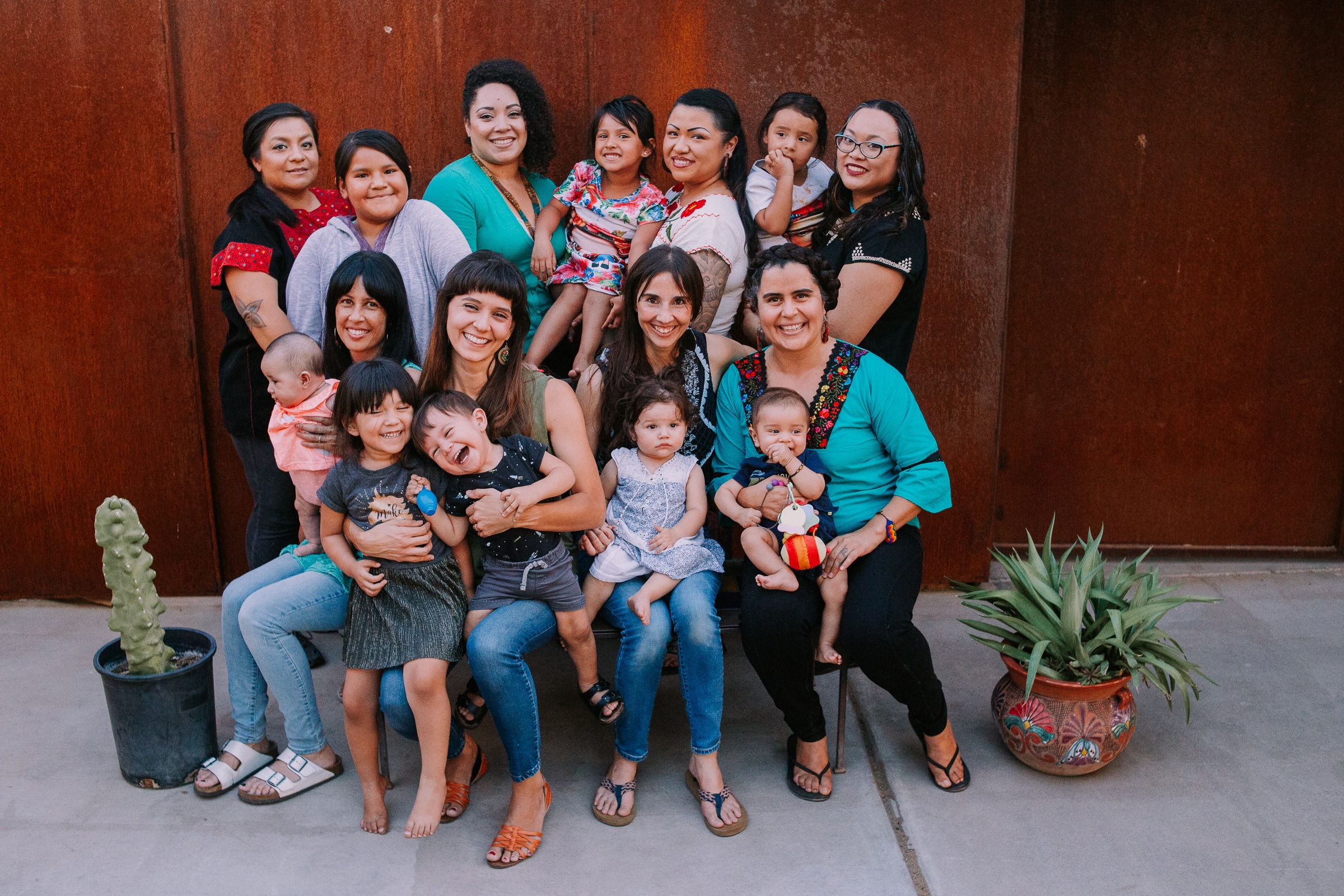
The statewide expansion of the Women’s Foundation allows the organization to impact women and girls in all fifteen Arizona counties, and to cultivate relationships to serve women and girls on Arizona tribal lands. While the WFSA has always served minority and underserved populations, in 2021, the Foundation made Black, Indigenous, and women of color its priority, focusing on directly impacting, addressing, and improving the inequities faced by these populations.
One example of the impact of WFSA’s expansion and focus is the Foundation’s support of the Cihuapactli Collective based in Phoenix, Arizona. The Cihuapactli Collective’s purpose is to provide healing for urban Indigenous Peoples from the diaspora. Members of the Collective share wisdom, connect resources, revitalize traditional knowledge, promote and advocate for health and wellness.
Perla Farias, co-founder and marketing and communications director of the Collective, talked about its beginning: “Maria [Executive Director Maria del Carmen Parra Cano], a close friend of mine who was pregnant and whose mother had just passed, put out a call for help with her spiritual community. She felt like there was a disconnect when it came to talking about motherhood, parenting and traditional knowledge. She wanted to bring everything together with people who she knew had similar spiritual values to hers. So about 13 or 14 of us got together as comadres, which translates to co-mothers. We came together to support each other and talk about what we’re going through emotionally.”
Those first gatherings grew into the women wanting to gather creosote from the desert and make medicines that would help support their families. They made fire cider and other remedies, tapping into ancestral healing practices that their grandmothers and mothers passed on.
Perla continued, “Within the first year of coming together, we decided to host a gathering. It’s called the Ancestral Womb Wellness Gathering. And now every year we bring together different speakers, community, folks who carry a lot of that ancestral knowledge, to share how to take care of our wombs. Now that’s expanded into how to take care of our overall wellness while still centering on the womb.”
The group became a nonprofit organization and has now developed the Collective Birth Fund that is available to support anyone in the community who would like financial support for maternal birthing postpartum services. This helps reduce the maternal mortality rate that disproportionately impacts BIPOC communities.
Perla talked about the difference they make in women’s lives: “For many women, we’ve been able to provide services for physical care. And when people get adequate physical care to support the healing of their bodies postpartum, including having the right herbal remedies, it supports their bodies to come back to homeostasis, transforming the way they’re healing mentally through that postpartum phase.”
When women don’t get adequate physical care, it’s easier to slip into depression and have postpartum anxiety. Often they’re suffering from sleep deprivation, and other stressors that impact their quality of life, which then impacts how they parent their children. Perla said, “What we’ve seen from everyone we have supported directly is that they are stable or happy, they are more well off and their mental health isn’t on the brink; they’re actually doing well and thriving.”
The Collective also started a sacred community birth worker pilot program, training current or aspiring BIPOC birth workers. “There are many people who do birth work–doulas and midwives–but sometimes they lack that component of a sacred, holistic way of taking care of people,” said Perla. The Collective held 13 sessions on various topics, from harm reduction, to mental health, to learning about the menstrual cycle to postpartum healing, and lactation, all from an indigenous perspective. The intention is to have that knowledge expand to other communities as well.
“We take an intersectional approach where we try to weave supporting women’s health with supporting our community with food,” said Perla. “We need land and physical resources to help our community access these services in a more stable way.”
The Collective is currently in the process of acquiring seven acres in South Phoenix through the City of Phoenix. Perla said, “Since we first gathered, we’ve had this dream of having a Wellness Center that could support mothers and families and children, a place for birth workers to care for their clients, and a place where people can attend workshops and learn more about how to care for themselves.”
The land that the Collective is acquiring includes a cemetery with unmarked graves of children and farmworkers from the 1800’s. Fitting with the Collective’s mission statement of serving and supporting the wellness of urban indigenous people from womb to tomb, the Collective will be stewards of the cemetery. “We will be caring for the cemetery in a spiritual, holistic way, where we honor the people who are there through ceremony and by providing infrastructure so people walk through the cemetery and identify those who are there. We’re hoping we can help make this a peaceful, sacred space for the community to visit their loved ones,” said Perla.
“We’re an Indigenous women-led organization, and so to see that not only have we been able to care for each other and then care for others, but there’s empowerment and agency that has come from actually making these things come to life,” said Perla. “And because of the impact that the Collective has made on us individually, how we started serving each other and immediate community, now we know the impact that it can make on the greater community. Everyone benefits from this healing.”
